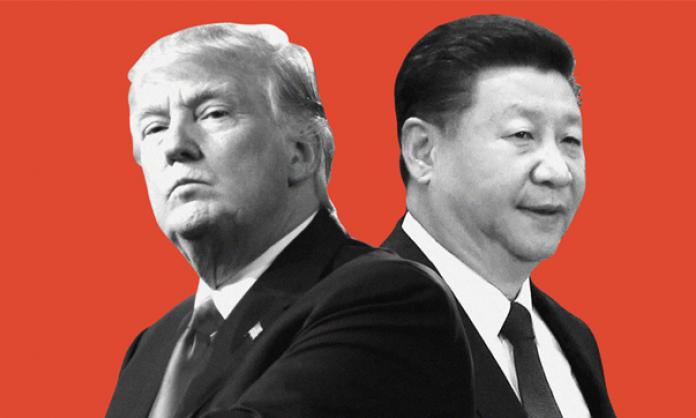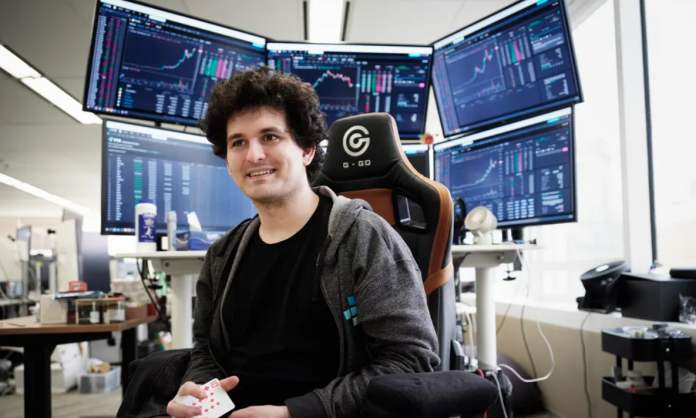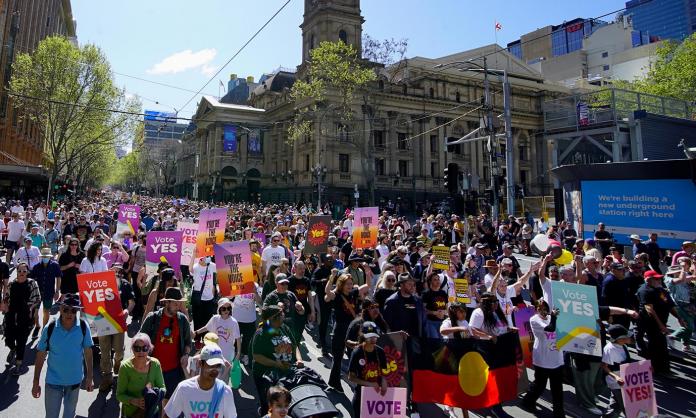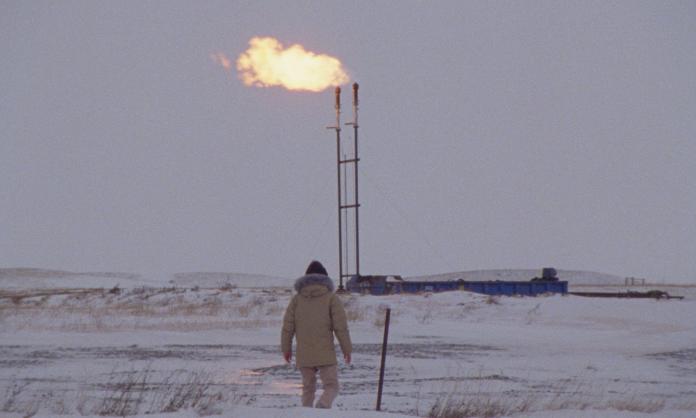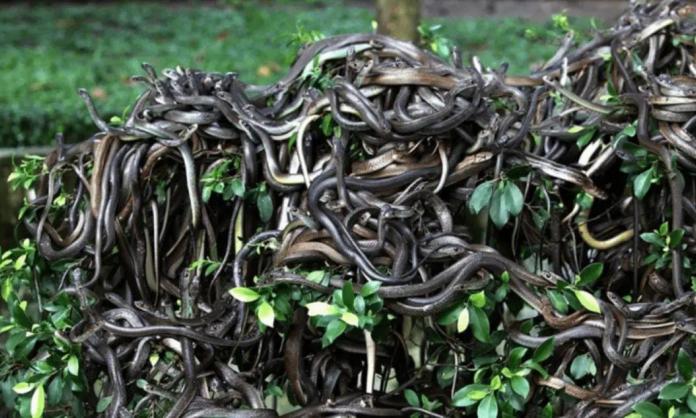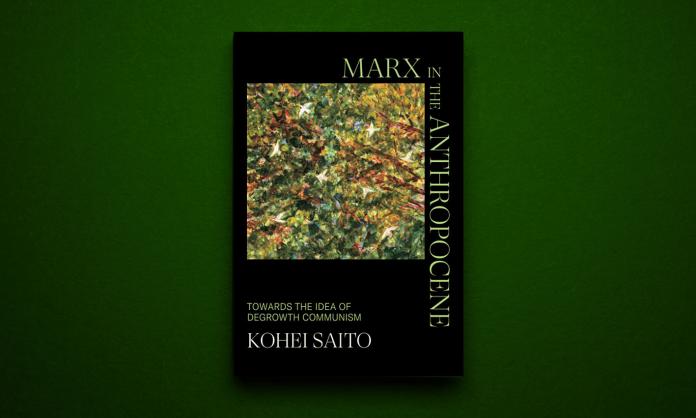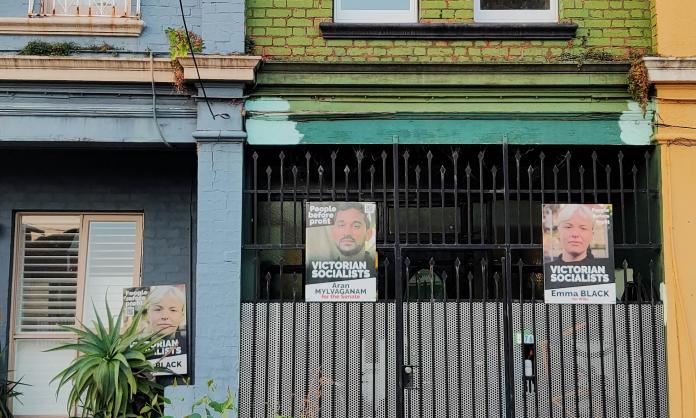We are in the early stages of a cold war between two reactionary imperialist states. There is no good side.
The Chinese Communist Party has tightened its grip on the country as its central committee – emboldened by the economic, social and imperial crises afflicting the United States this century, and wary of domestic political opposition and civil unrest – has centralised power and is winding back previous limited democratic reforms. The country’s decades-long economic expansion and soft power wrangling in international affairs is transforming into military expansion and more assertive interventionism.
One small illustration of this is the attempt to impose an extradition law in Hong Kong, which would allow Hong Kongers to be tried and potentially jailed for breaking mainland China laws that don’t formally apply in their enclave. In the epic struggle for democratic rights that has resulted, students and workers are facing down a local ruling class backed by Beijing. They are also facing intimidation from Chinese nationalists whipped into a patriotic frenzy. This has occurred internationally, with pro-democracy protests at university campuses and in the streets here in Australia besieged by pro-dictatorship nationalist counter-protests.
Hong Kong is the latest in a series of democratic struggles against the Chinese state and its ruling party, which uses the language of socialism to cover its crimes much like Western leaders use the language of democracy to cover theirs. The Muslim Uyghur people, bearing the brunt of China’s own “war on terror”, are experiencing surveillance and dispossession on a scale rarely seen outside of Western-backed invasions of Muslim countries. Chinese worker activists and socialists are persecuted by police and driven underground. And in recent times in villages and cities across the country, demonstrations against official corruption have flared.
The rise of China and the enduring grip of the Communist Party have created consternation and concern among the imperialist states, particularly the United States, and among sections of the political, intelligence and media establishments in Australia. Yesterday’s platitudes about “cooperation”, “mutual respect” and “understanding” are today betrayed by rapidly expanding military spending and a campaign of scaremongering and witch-hunting to build support for more decisive confrontations between Western imperialism and the rising Asian giant.
Working people everywhere have nothing to gain by taking sides in this emerging conflict. Despite all the talk of cultural and political differences, of competing ideologies, there is more uniting the rulers in the East and the West than there is dividing them: both are enriched by manipulating the market and exploiting the mass of the population, both view the rest of the world as a potential source of wealth or security, and both use terrifying violence against those who stand in their way.
Countries such as the US and Australia run the most extensive domestic and global surveillance networks ever seen. The ruling and opposition parties in the West have deployed migrant-bashing nationalism to distract from their pro-business agendas and waged war around the world for decades. They have decimated the Middle East, leaving hundreds of thousands murdered.
But suddenly they, and their media lackeys, feign concern for the rights of Muslims, workers and democratic activists in China and Hong Kong. These Western imperialist powers, which prop up dictatorships all over the world, are suddenly concerned about the threat to democracy posed by Chinese university students studying abroad. They’re suddenly concerned for small states that can’t stand up for themselves – often ones they previously colonised, invaded or exploited themselves.
While the big capitalists around the world for now are primarily interested in making money out of the Chinese economy’s appetite for raw materials and out of the country’s burgeoning middle class consumption, we are being primed for a confrontation. The level of hysteria in the Australian liberal press is more than concerning. The constant stream of articles about “Chinese influence” and the nefarious motives of Chinese in Australia finds no equivalent hysteria about US interference in the country – even though it is far more pronounced and obvious.
That’s not because the media are blind to Pine Gap, the marines stationed in Darwin, the US-funded university institutes or the regular interactions between politicians and US embassy staff. It’s because the military and security establishment has chosen its side in the conflict and the owners and editors of the corporate media are as obsequious as their counterparts at the China Daily.
The same propaganda offensive is going on in China, the party leadership using ultra-nationalism to mobilise the population, particularly the middle classes.
It is the duty of socialists around the world to resist this global “softening up” – to stand against the patriotism, nationalism and racism that are the by-products of intensifying interstate competition. It is an apt time to remember the internationalist slogan of German socialist Karl Liebknecht, who was assassinated a century ago for declaring in World War One: “The main enemy is at home”. While the Chinese Communist Party’s crimes are many, and we are right to stand with Hong Kong and with the Uyghurs, criticism of China won’t do the world any good if it just becomes a cover for supporting Western-backed oppression. That’s not internationalism: it’s just the same old Western imperialism posing as humanitarian helpfulness.
Red Flag supports the struggles of workers and the oppressed everywhere. Only through a united, international fight for a better world will the global system of capitalism be defeated. Karl Marx and Frederick Engels wrote in the Communist Manifesto: “The struggle of the working class with the capitalist class is at first a national struggle. The working class of each country must ... first of all settle matters with its own capitalist class”.
We agree. The contribution those of us in Australia can make to a united international struggle is not to take sides in this inter-imperialist rivalry, but to fight against our own ruling class – just as workers and the oppressed are doing in every country in the world, from the US to China, Brazil to Iran, and Russia to France.




